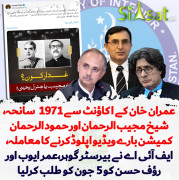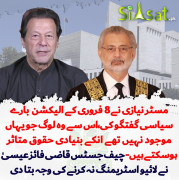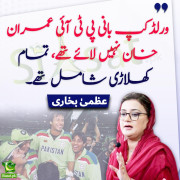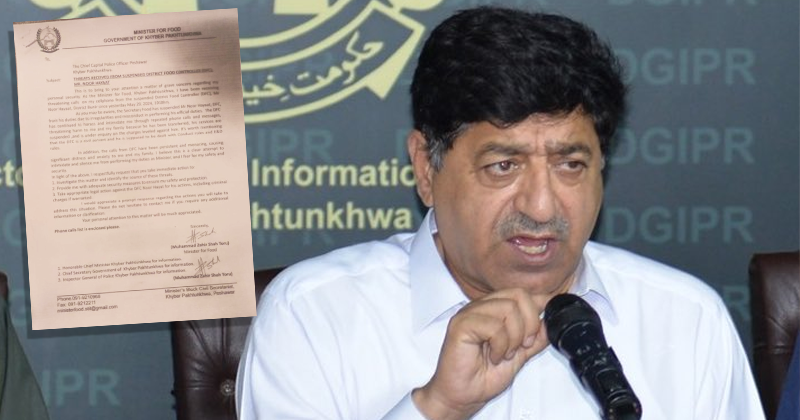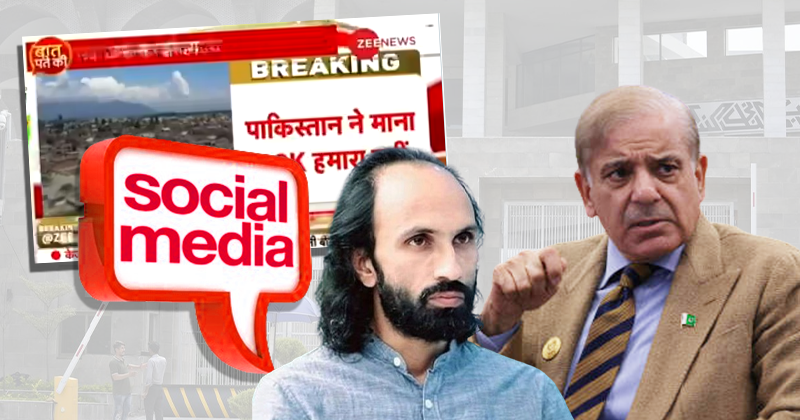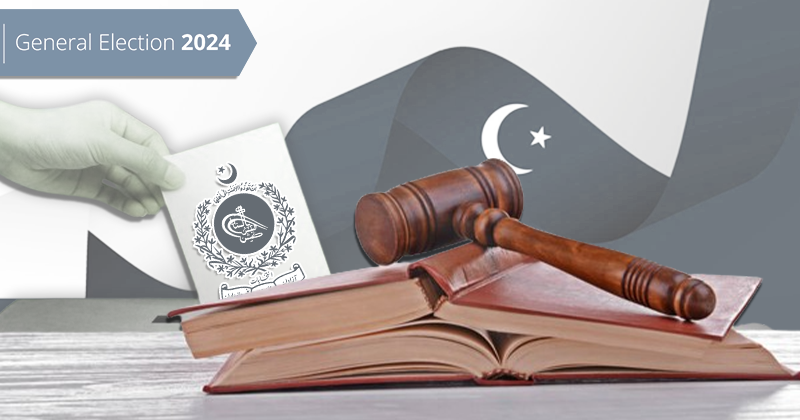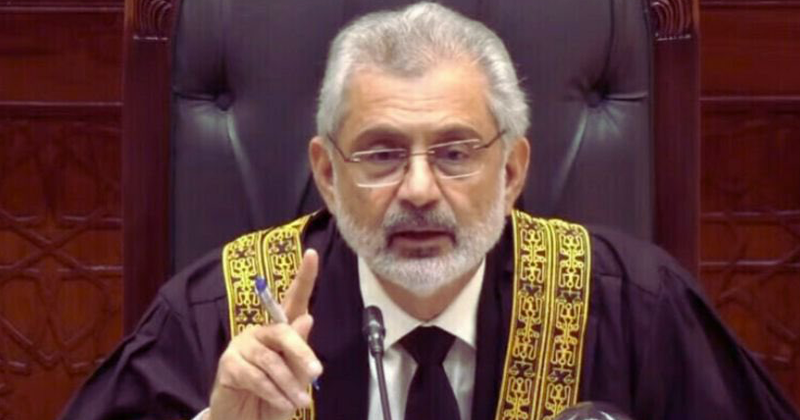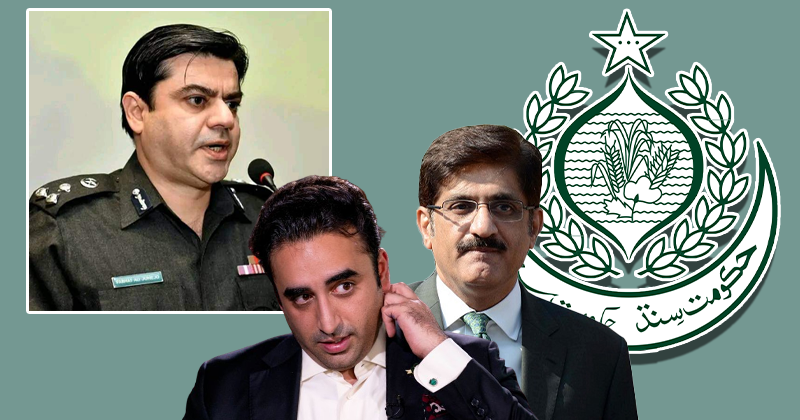al-boriqee
Citizen
asalamu alaikum warahmatullah
I have noticed that in this issue, after reviewing what has been said by some members, that there is a genuine support for extremity in this very issue either leaning too much towards the right or to the left. In light of this, I wish to portray the more balanced approach of Ahlu-Sunnah. Thus in this balanced approach, the people involved here will on the onset agree to some and disagree to some, depending on which side of extremism they adopt on the subject.
In propagating the balanced approach, i will have to clear misconceptions that have been thrown on the back of ahlu-sunnah as the people of the middle path have always been castigated as "the other side", a deception that Iblees has been successful in for quite some time.
The first thing I wish to establish before going on to responses is that in the fundamental root of the matter, there is no such thing, from the basis of Islam as understood by the first few generations of Muslims as "Taqlid". Thus this by itself is a SLIGHT refutation to those who propagate the idea of taqlid. HOWEVER, there was always the concept of "'Ittibaa" i.e. (following), and in the shariah, this entails "following QUALIFIED scholarship".
Thus, in the spirit of following qualified scholarship, I will be able to make some corrections in understanding inshaallah to those who believe in absolute taqlid while at the same time be able to establish through logic that following qualified scholarship is normal and a rational way of acquiring information in refutation of those who advocate these forms of freelance thinking among the taqlid rejection movement that is usually found among all revisionist oriented ideological movements like secular progressives, modernists, or the munkarul-hadith movement.
I ask that the members here would for the time being, put aside their personal convictions and to honestly review some of the material I may have to present here and to Allah lies the success.
this is true, barakallahu feekum
there is not really a consensus on the matter by the Muslim scholars, rather this was a position adopted in the later 7th century onwards by Haafidh Ibn Rajab al-Hanbali rahimahullah and other notable Imaams. In reality nobody advocated the "OBLIGATION" if you will about making taqleed of a madhaab.
If you want to know why the late seventh century ulema began to impose the concept of taqlid upon the muslim community, the basis of their fatawaa had to do with the common people converting to heterodox madhaahib among the shi'a. This was what was happening in their time. In the wake of this environment, the ulema of this time (after Ibn Taymiyyah) in the Muslims lands in the mid-east began to obligate taqlid to only the four madhaabs in order to preserve the boundaries of orthodoxy. This was the actual basis for forming the concept of taqlid to a madhaab. Were these scholars wrong in their ijtihaad to mandate this. In my opinion, not really, they had to answer a relative problem in their own contemporary world. However, their decisions did have major impact on future generations, most of which landed towards a rather negative and rather backwards reality. Moreover, the most conclusive negative result in this whole ordeal is that modern propagators to taqlid have taken their concept of taqlid far beyond what the original intent of these Imaams was.
Maybe your not aware my dear brother, but this principle right here has nothing to do with any "legal" theory. This was a purely Aristotelian based antic propagated by the Ash'ari theological movement and the basis for this argument is pure 100 percent Aristotelian in origin. This principle has nothing to do with Islam, the Muslims, Muslim scholarship, or even has anything to do with legal theory and its branch matters.
This position is actually a correct position. You just need some other information and tools in order to understand this position in the correct light. By the Grace of Allah, you will be able to inshaallah.
yes, there are some people among the "salafi" movement who say this, and they are wrong and ignorant of what they are trying to advocate. I mean by this that the concept they are "TRYING" to advocate maybe correct, but the manner they are advocating it has problematic issues within it and the people they are advocating it to, usually receive it in the wrong light, which I blame the salafis more than other than them. Then of course, there is the modernist movement, and that is a whole other world that has to be tackled as well as their paradigm is a completely different paradigm to Islam and the Muslims.
this is not absolute. We say that this is the case for those involved in the seeking of knowledge i.e. students of knowledge. The orthodox scholars have clarified that people are on different levels or wavelengths in the realm of knowledge.
Observe the following material by the Permanent Committee of Major Scholars in Saudi Arabia
Question:
What is the true meaning of taqleed and what are its categories along with the clarification of its ruling?
Answer:
All praise is for Allah alone and may the Peace and Blesssings be on His messenger, and his family, and his companions.
To proceed:
a) The scholars of Usool (fundamentals) have mentioned definitions to clarify the true meaning and essence of taqleed, and from them is the saying of some of them that taqleed is the acceptance of a saying of a person without him knowing its evidence. And some of them [the scholars] held the view that taqleed is the acceptance of the saying of a person without argument. And Abu Ma'aali al-Juwayni chose the definition of taqleed that it is the following of one whose following is not based on proof and does not rely upon knowledge. And these definitions of the scholars of Usool, which are all close in meaning, have in it differences [in wording] which originate in the skill of enunciation, but the point here is to clarify the essence of taqleed in the manner of approximation.
b) And as for its categories along with the ruling of every category, then it is as follows:
1) Taqleed by the one who has the skills of ijtihaad, to others from the scholars after the truth has been made clear to him with confirmed evidences from the Prophet (s).
This is not permissable for him to do taqleed to what contradicts that which reached him from evidences and ijmaa’ (consensus).
2) Taqleed by the one who has been endowed the skill of ijtihaad, to one other than him from the mujtahideen before he reaches a ruling with his [own] ijtihaad.
Then it is not allowed for him to do taqleed to others.
[This is what] as-Shaafi'i, Ahmad, and others, Allah have mercy on them, held as their opinion, and is more correct, due to his ability to arrive at a ruling by himself. He is responsible for ijtihaad to know what the sharee’ah has made him liable for because of His saying, the Most High,
"So have taqwa of Allah as much as you are able,"
and what has been confirmed from the saying of the Prophet(s), "When I command you by a command, then follow it as much as you are able."
3) Taqleed of the one who is not able to research the evidences and derive rulings from it, to a scholar who has been endowed the skill of ijtihaad in the evidences of the sharee’ah.
This is permissible, due to His saying, the Most High,
"Allah does not burden a soul more than it can bear,"
and His saying, the Exalted,
"Then ask the people of remembrance [scholars] if you do not know,"
and other texts similar to these, which point to the removing of difficulty and the protection of the one responsible, from straying about in the rulings and speaking about Allah without knowledge.
4) The taqleed to the one who differs with the sharee’ah of Islam from the forefathers, leaders, and rulers, due to nationalism or following desires.
This is prohibited by ijmaa’. And verily many texts from the Qur'aan and Sunnah have been mentioned [in this]. And Allah, the Most High said, say:
'Rather we shall follow what we found our fathers following,' even though their fathers did not understand anything nor were they guided."[Baqarah:170]
And Allah, the Most High said,
"But no, by your Lord, they can not have faith until they make you judge in all disputes between them, and they find in themselves no resistance against your decisions, and accept with full submission."
And Allah, The Most High said,
"And it is not for a believer, man or woman, when Allah and His messenger have decreed a matter that they should have any option in their decision." [al-Ahzaab:36]
And the Most High said,
"And let those who oppose his [the Messenger's] commandment beware, lest some trials should befall on them or a painful torment be afflicted on them."[Noor:63]
And the Most High said,
"Say If you [indeed] love Allah, then follow me, Allah will love you and forgive you your sins."[Aali Imraan:31] And the Most High said,
"Verily Allah has cursed the disbelievers and prepared for them a flaming fire. They will abide in it forever, they will find no protector nor helper. On the day when their faces will be turned over in the Fire, they will say: 'Oh would that we had obeyed Allah and obeyed the Messenger. And they will say: 'Our Lord! Verily we obeyed our chiefs and our great ones, and they misled us from the right way. Our Lord! Give them double torment and curse them witht a mighty curse!" [al-Ahzaab:64-68]
Permanent Committee for Research and Verdicts
Shaykh `Abdul-`Azeez Bin Baz
Shaykh `Abdullah bin Ghudayaan
Shaykh `Abdur-Razzaaq al-`Afeefee
The Fataawaa of The Standing Committee for Islamic Research and Ifta, No. 11296
This is actually correct according to our view barakallahu feekum
this is actually the sunni or salafi stance and your are likewise correct barakallahu feekum
again, you are correct.
likewise you once again correct.
While all of these things are correct, these facts don't imply towards the "necessity" of taqleed.
this is a poor, or rather unfounded depiction of historical reality. Ibn Taymiyyah was a propagator of following qualified scholarship. What he rejected were those ulema who remained rigorously in sync to what others said in the madhaab. This his polemic was geared towards ulema rather than to the laity (common folk). Moreover as a haafidh and Mujtahid Imaam, he was himself following the madhaab of Ahmad.
to insinuate that he always refered to his judgments over his Imaams is baseless.
some people do say that and it is likewise erroneous, and in my view, that is because they do not know how to advocate what they are trying to express which actually causes further misunderstanding which plays right into the hands of the shayateen may Allah strengthen the Muslims.
this is a rather misinformed review of the issues and there is no need to reply to this.
The Shaykh is not doing any blind following here and this is a non issue not worthy of a reply here.
this is because there is a difference between
1. following qualified scholarship
2. taqlid
that is true, but you, and many other people do not understand how this takes place.
while there is some misinformation here, in other aspects you are right and I do lay blame on the salafis for having a lack of clarity in their dawah in what they mean in their advocacy.
likewise you are right and blame can be laid at the hands of salafis, of course in my view, not for their principles in which they believe, but in how they advocated it.
this is not actually accurate. the position of ahlu-sunnah on this matter is that the laymen MUST consult with a scholar who they confide in and who fulfills the requisites of Islamic knowledge, and once a laymen does find a shaykh whom they confide in, then they take the shaykhs words. Usually this is what happens, and if they have any doubts, usually the shaykh clarifies it.
Now it is my understanding that this doesn't exactly go as planned in the sub-continent because the hanafis of this region are usually adamant about the laity asking further questions, and this is also the result of a lack of substantive educational upbringing among these hanafi mufits. Thus this environmental phenomenon does nothing to acquiesce the laity nor does it help Muslim scholarship in the least. And this phenomenon is a direct result of the concept of taqlid.
I know what your trying to say even though your wording doesn't make sense. However, even in what your trying to say, it is still erroneous because in reality, this does not happen. Usually what happens is that most of the common folk simply want an answer, and usually they adopt an answer that makes sense to them. And if later on they come across further information that may contradict the information they received before, they will have further inquiries and then chose, from among the information they have received, as to what they think is best.
This in reality, according to ahlu-sunnah is the ijtihaad of the laity, to be able to assess what information they have received and apply the best of it to themselves. This has nothing to do with the laity taking on Muslim academic scholarship and inventing their own principles and making up their own theories, this is just simple common day to day life.
this is not what those opposed to taqleed among the salafi or ahlul-hadeeth movement are saying. They already know that there are views that are contradictory to each other. Thus when they say to adopt the best of the four, they are not saying to adopt all four in a single issue, as this is impossible, rather they are saying to adopt the best opinion in one issue from the four and not that the four madhaabs are followed in a single issue.
this is with regards to the mentality of people who in what we call in modern times perform "fatwa shopping". yes, it is haraam by ijmaa that someone finds the most radical or most liberal position of one imaam and continiue the same route in each issue with different Imaams. This is somewhat the madhaab of the modernist movement, merely utilizing those very minute positions of the Imaams that support their unwarrented heresies in the religion. Others who are not modernist, they simply go fatwa shopping just to make things easy for themselves, and this is likewise a corruption of ideological thought and haraam by ijmaa.
And most other Muslims do not go fatwa shopping like this. Rather they weigh what each has said in to see what they feel is most pleasing to Allah.
Thus it is necessary to find out the state or intent of people in such matters rather than broadly making a statement such as the above which may not apply to all people. This is based on the usooli principle "al-Umoor bil-Qasdihaa" i.e. matters are determined according to their intention
that may be true for some people in the elite, but the system of taqlid was not set up to establish this phenomenon. As with many things of this nature, things can be abused later on or taken far away from its original intent, and the system of taqlid is one such instance
this is not absolute and there is a particular pattern in how self rational thinking is to be practiced. I would urge that you read the following material on your spare time.
http://islamthought.wordpress.com/o...ct-between-modern-western-paradigm-and-islam/
not necessarily. There is truth to what you say and likewise it is not absolute.
Even a person such as yourself, well if you live here in America, are bound by the same ineptitude of you will. Allow me to explain.
When I (or anyone else for that matter) go to the doctors office, and we are diagnosed with some type of cancer, the doctor as well looks into if you are medically eligible for some type of chemotherapy.
The question here is, is the patient like myself or yourself going to question this doctor by impugning him with a lack of applying medical rules in determining our medical state, taking into consideration that we may have absolutely no shred of medical expertise to actually substantiate our opinion in the wake of this doctors opinion. The most one can do is to simply go to another doctor and get another medical opinion. The point here is you and I are bound to the intellectual hemisphere of the specialist in a particular field.
That is just the medical field. The same is applied to all fields, including religious. In the legal field, I most likely am forced to use a lawyer, a specialist in the field of law, to represent myself because i do not know the technical knowhow of the legal jargon or the laws and even the principles used in the derivation of law in the legal system to determine how to best represent myself. The question here is, are such people to be labelled as "a baby mind" and they need to grow up.
There is something called "professions" and people who take on a profession are usually relied upon by those who have not taken up such a profession.
Likewise those who take it upon themselves to perform the work of professionals, and are not qualified to perform it, in the western world, more specifically in America, it is usually called malpractice. Thus there is medical malpractice, legal malpractice, etc.
In Islamic sciences, the same concept applies, it is religious malpractice.
the ignorance prevalent in Muslims societies has a lot more to do with many other matters than simply the taqlid phenomenon.
Allah has made the true adherents to His religion a "balanced nation". Thus they neither take matters into their own hands in religious knowledge like some type of ideological vigilantism and freelance thinking and thus relegate matters to the proper authorities, nor do they become sheople and follow the views of men towards the opposition to Allah's rule.
this is true and untrue at the same time. Here is why
True, they did not advocate taqlid.
however, they did obligate following everything they said and did. The only onese whom taqlid is binding in absolute form are the prophets, and for us, the messenger of Allah. We accept his sayings without any thought or hesitation if it is established from him.
because we follow qualified scholarship
this is not absolute
there is a behavior to everything and correct behavior has to be accompanied by the correct intention.
asalamu alaikum warahmatullah
I have noticed that in this issue, after reviewing what has been said by some members, that there is a genuine support for extremity in this very issue either leaning too much towards the right or to the left. In light of this, I wish to portray the more balanced approach of Ahlu-Sunnah. Thus in this balanced approach, the people involved here will on the onset agree to some and disagree to some, depending on which side of extremism they adopt on the subject.
In propagating the balanced approach, i will have to clear misconceptions that have been thrown on the back of ahlu-sunnah as the people of the middle path have always been castigated as "the other side", a deception that Iblees has been successful in for quite some time.
The first thing I wish to establish before going on to responses is that in the fundamental root of the matter, there is no such thing, from the basis of Islam as understood by the first few generations of Muslims as "Taqlid". Thus this by itself is a SLIGHT refutation to those who propagate the idea of taqlid. HOWEVER, there was always the concept of "'Ittibaa" i.e. (following), and in the shariah, this entails "following QUALIFIED scholarship".
Thus, in the spirit of following qualified scholarship, I will be able to make some corrections in understanding inshaallah to those who believe in absolute taqlid while at the same time be able to establish through logic that following qualified scholarship is normal and a rational way of acquiring information in refutation of those who advocate these forms of freelance thinking among the taqlid rejection movement that is usually found among all revisionist oriented ideological movements like secular progressives, modernists, or the munkarul-hadith movement.
I ask that the members here would for the time being, put aside their personal convictions and to honestly review some of the material I may have to present here and to Allah lies the success.
Taqlid can be defined as the acceptance of a mujtahid's statements (fatawa) without knowing his references (evidences) [an-Nawawi, Tazeeb; and Qadi Shawkani, Irshad al-Fahul]
this is true, barakallahu feekum
There is a consensus amongst the majority of Muslims that we should follow the four major Imams in matters of Shari'a. Such matters include:
Those matters in which there is no direct, single and clear meaning in sources of Shari'a
When there exists a difference of opinion between the Sahaba upon an issue, the Imams have tried to show the similarities in them
there is not really a consensus on the matter by the Muslim scholars, rather this was a position adopted in the later 7th century onwards by Haafidh Ibn Rajab al-Hanbali rahimahullah and other notable Imaams. In reality nobody advocated the "OBLIGATION" if you will about making taqleed of a madhaab.
If you want to know why the late seventh century ulema began to impose the concept of taqlid upon the muslim community, the basis of their fatawaa had to do with the common people converting to heterodox madhaahib among the shi'a. This was what was happening in their time. In the wake of this environment, the ulema of this time (after Ibn Taymiyyah) in the Muslims lands in the mid-east began to obligate taqlid to only the four madhaabs in order to preserve the boundaries of orthodoxy. This was the actual basis for forming the concept of taqlid to a madhaab. Were these scholars wrong in their ijtihaad to mandate this. In my opinion, not really, they had to answer a relative problem in their own contemporary world. However, their decisions did have major impact on future generations, most of which landed towards a rather negative and rather backwards reality. Moreover, the most conclusive negative result in this whole ordeal is that modern propagators to taqlid have taken their concept of taqlid far beyond what the original intent of these Imaams was.
We only observe taqlid in matters of fiqh, not in our 'aqida. The unity of Allah, the finality of the Prophet Muhammad (may Allah bless him and grant him peace) and the Day of Judgement etc. are matters of 'aqida so they are not concerned with taqlid.
Maybe your not aware my dear brother, but this principle right here has nothing to do with any "legal" theory. This was a purely Aristotelian based antic propagated by the Ash'ari theological movement and the basis for this argument is pure 100 percent Aristotelian in origin. This principle has nothing to do with Islam, the Muslims, Muslim scholarship, or even has anything to do with legal theory and its branch matters.
Some say that it is a form of shirk (polytheism) to observe taqlid of anyone apart from Allah.
This position is actually a correct position. You just need some other information and tools in order to understand this position in the correct light. By the Grace of Allah, you will be able to inshaallah.
In particular, to follow only one Imam is a bid'a.
yes, there are some people among the "salafi" movement who say this, and they are wrong and ignorant of what they are trying to advocate. I mean by this that the concept they are "TRYING" to advocate maybe correct, but the manner they are advocating it has problematic issues within it and the people they are advocating it to, usually receive it in the wrong light, which I blame the salafis more than other than them. Then of course, there is the modernist movement, and that is a whole other world that has to be tackled as well as their paradigm is a completely different paradigm to Islam and the Muslims.
They say that the evidence from all the Imams should be read and weighed in order that only those verdicts based upon strong evidence can be accepted and weak ones rejected.
this is not absolute. We say that this is the case for those involved in the seeking of knowledge i.e. students of knowledge. The orthodox scholars have clarified that people are on different levels or wavelengths in the realm of knowledge.
Observe the following material by the Permanent Committee of Major Scholars in Saudi Arabia
Question:
What is the true meaning of taqleed and what are its categories along with the clarification of its ruling?
Answer:
All praise is for Allah alone and may the Peace and Blesssings be on His messenger, and his family, and his companions.
To proceed:
a) The scholars of Usool (fundamentals) have mentioned definitions to clarify the true meaning and essence of taqleed, and from them is the saying of some of them that taqleed is the acceptance of a saying of a person without him knowing its evidence. And some of them [the scholars] held the view that taqleed is the acceptance of the saying of a person without argument. And Abu Ma'aali al-Juwayni chose the definition of taqleed that it is the following of one whose following is not based on proof and does not rely upon knowledge. And these definitions of the scholars of Usool, which are all close in meaning, have in it differences [in wording] which originate in the skill of enunciation, but the point here is to clarify the essence of taqleed in the manner of approximation.
b) And as for its categories along with the ruling of every category, then it is as follows:
1) Taqleed by the one who has the skills of ijtihaad, to others from the scholars after the truth has been made clear to him with confirmed evidences from the Prophet (s).
This is not permissable for him to do taqleed to what contradicts that which reached him from evidences and ijmaa’ (consensus).
2) Taqleed by the one who has been endowed the skill of ijtihaad, to one other than him from the mujtahideen before he reaches a ruling with his [own] ijtihaad.
Then it is not allowed for him to do taqleed to others.
[This is what] as-Shaafi'i, Ahmad, and others, Allah have mercy on them, held as their opinion, and is more correct, due to his ability to arrive at a ruling by himself. He is responsible for ijtihaad to know what the sharee’ah has made him liable for because of His saying, the Most High,
"So have taqwa of Allah as much as you are able,"
and what has been confirmed from the saying of the Prophet(s), "When I command you by a command, then follow it as much as you are able."
3) Taqleed of the one who is not able to research the evidences and derive rulings from it, to a scholar who has been endowed the skill of ijtihaad in the evidences of the sharee’ah.
This is permissible, due to His saying, the Most High,
"Allah does not burden a soul more than it can bear,"
and His saying, the Exalted,
"Then ask the people of remembrance [scholars] if you do not know,"
and other texts similar to these, which point to the removing of difficulty and the protection of the one responsible, from straying about in the rulings and speaking about Allah without knowledge.
4) The taqleed to the one who differs with the sharee’ah of Islam from the forefathers, leaders, and rulers, due to nationalism or following desires.
This is prohibited by ijmaa’. And verily many texts from the Qur'aan and Sunnah have been mentioned [in this]. And Allah, the Most High said, say:
'Rather we shall follow what we found our fathers following,' even though their fathers did not understand anything nor were they guided."[Baqarah:170]
And Allah, the Most High said,
"But no, by your Lord, they can not have faith until they make you judge in all disputes between them, and they find in themselves no resistance against your decisions, and accept with full submission."
And Allah, The Most High said,
"And it is not for a believer, man or woman, when Allah and His messenger have decreed a matter that they should have any option in their decision." [al-Ahzaab:36]
And the Most High said,
"And let those who oppose his [the Messenger's] commandment beware, lest some trials should befall on them or a painful torment be afflicted on them."[Noor:63]
And the Most High said,
"Say If you [indeed] love Allah, then follow me, Allah will love you and forgive you your sins."[Aali Imraan:31] And the Most High said,
"Verily Allah has cursed the disbelievers and prepared for them a flaming fire. They will abide in it forever, they will find no protector nor helper. On the day when their faces will be turned over in the Fire, they will say: 'Oh would that we had obeyed Allah and obeyed the Messenger. And they will say: 'Our Lord! Verily we obeyed our chiefs and our great ones, and they misled us from the right way. Our Lord! Give them double torment and curse them witht a mighty curse!" [al-Ahzaab:64-68]
Permanent Committee for Research and Verdicts
Shaykh `Abdul-`Azeez Bin Baz
Shaykh `Abdullah bin Ghudayaan
Shaykh `Abdur-Razzaaq al-`Afeefee
The Fataawaa of The Standing Committee for Islamic Research and Ifta, No. 11296
The view of the Ahl as-Sunna wa'l-Jama'a is that it is impossible for an ordinary Muslim to go directly to the Qur'an and Sunna and extract religious laws.
This is actually correct according to our view barakallahu feekum
This is due to the fact that these sources of knowledge contain many matters which are unclear - thus requiring research into many other sources along with the application of rules which assist in understanding the matter under study.
this is actually the sunni or salafi stance and your are likewise correct barakallahu feekum
In order to do this, a person needs to possess both a deep and broad knowledge of Islam, which is both impractical and not incumbent upon each and every Muslim. Allah does not expect all Muslims to become scholars, rather He orders them to refer to those who have knowledge. Consider the following verse:
"And ask those who recall, if you know not"
[Sura 16, verse 43]
Also, in Sura Nisa:
"If they had referred it to the Messenger and to those of authority among them, then those of them whose task it is to find it out would have known the matter"
[Sura 4, verse 83]
again, you are correct.
For those who have the necessary pre-requisites, such as being a master of 'ulum al-Qur'an, master of ahadith and their principles, 'aqa'id, fiqh principles, Tafsir and its principles, and jarh wa ta'dil (the science of hadith narrators). They are allowed to take ahkam (legal rulings) from the Shari'a. Such a person can be called a mujtahid. However, many great scholars who were qualified to perform ijtihad, followed Imams. For example, Qadi Abu Yusuf, Imam Muhammad and Imam Zafar were able to perform ijtihad but followed the opinion of Imam Abu Hanifa.
likewise you once again correct.
There are many categories of hadith such as mutawatir (rigourously authenticated), authentic, not authentic, weak and those which are fabricated.Some are mansukh, which means that certain matters were at first permissible but later made impermissible - for instance talking during the salat during the early period of Islam was permissible but later on made unlawful. This is why taqlid is a necessity - the scholars have taken all the above into consideration before issuing their verdict.
While all of these things are correct, these facts don't imply towards the "necessity" of taqleed.
Rejectors of taqlid
Those who tried to reject taqlid, like Hafiz Ibn Taymiyya, were unsuccessful.
this is a poor, or rather unfounded depiction of historical reality. Ibn Taymiyyah was a propagator of following qualified scholarship. What he rejected were those ulema who remained rigorously in sync to what others said in the madhaab. This his polemic was geared towards ulema rather than to the laity (common folk). Moreover as a haafidh and Mujtahid Imaam, he was himself following the madhaab of Ahmad.
He was, however, not a muqallid (one who must do taqlid of a mujtahid) like the ordinary people. Nether the less, his works of literature contain influences from the Hanbali school of thought. He always preferred his fatwas to Imam Ahmad's.
to insinuate that he always refered to his judgments over his Imaams is baseless.
His followers also claim that they are not muqallid to anyone and taqlid is bid'a.
some people do say that and it is likewise erroneous, and in my view, that is because they do not know how to advocate what they are trying to express which actually causes further misunderstanding which plays right into the hands of the shayateen may Allah strengthen the Muslims.
But, they always perform taqlid of Hafiz Ibn Taymiyya and quote fatawa from his books. The following is one such example:
Shaykh Ibn Baaz (the late popular government scholar of Saudi Arabia) wrote one fatwa against Milad an-Nabi and another against travelling to the grave of the Prophet (may Allah bless him and grant him peace). He wrote that it is impermissible to celebrate the Milad, as Hafiz Ibn Taymiyya's research had stated that this was bid'a.Likewise, he stated that to visit the Prophet's (may Allah bless him and grant him peace) grave is impermissible because this was the opinion of Hafiz Ibn Taymiyya [Ibn Baaz, Milad an-Nabi; and Ziyara Roza Sharif]
this is a rather misinformed review of the issues and there is no need to reply to this.
We can see how Shaykh Ibn Baaz is blindly depending upon Hafiz Ibn Taymiyya's research. The Shaykh also performs taqlid to scholars such as Hafiz Ibn al-Qayyim, Hafiz Ibn Kathir, Ibn al-Hadi, Shawkani and Albani.
The Shaykh is not doing any blind following here and this is a non issue not worthy of a reply here.
This is quite astonishing! These people follow their Imams but still claim that they are not blind followers and call the followers of the four Imams blind followers!
this is because there is a difference between
1. following qualified scholarship
2. taqlid
In reality, everyone does taqlid in one way another.
that is true, but you, and many other people do not understand how this takes place.
Some follow Imam Abu Hanifa, some follow Hafiz Ibn Taymiyya. Furthermore, when they are told that a hadith is weak, authentic or fabricated, they accept this without researching it themselves. Cosequently, they blindly follow Imam al-Bukhari, Ibn Abi Hatim, Hafiz Mizayy, Hafiz al-'Asqalani, Hafiz adh-Dhahabi, and Hafiz Maqdasi. The fact is that these people do not conduct their own research, but 'blindly' follow the research of their scholars.
When rejectors of taqlid label a hadith as being authentic, weak or fabricated, they actually imitate scholars of Hadith who have previously categorised ahadith into the above groups. Also, the technical terms used by the classical scholars to describe the different ahadith, such as mursal, mu'dal, shadhdh, mu'allal, 'aziz, and gharib, are not mentioned in the Qur'an or Sunna. To utilise these terms is also a form of taqlid.
while there is some misinformation here, in other aspects you are right and I do lay blame on the salafis for having a lack of clarity in their dawah in what they mean in their advocacy.
Similarly, to accept principles of Hadith and Tafsir and also to interpret the Qur'an and Sunna in the light of these principles is to follow the imams who have developed these sciences. People who do not follow imams should find out the strength of a hadith directly without referring to any imam. They should also find new terms to describe the hadith, instead of mursal, shadhdh etc. They should invent their own principles of Hadith and Tafsir and then study the Qur'an and Sunna in the light of these new principles. Only then can they save themselves from 'shirk and bid'a'.
likewise you are right and blame can be laid at the hands of salafis, of course in my view, not for their principles in which they believe, but in how they advocated it.
Doubts Raised by the Objectors to Taqlid
Those who oppose taqlid argue that there is no need to follow one particular Imam. They conduct their own personal research, in the hope that they will find the Imam that has the best opinion.
this is not actually accurate. the position of ahlu-sunnah on this matter is that the laymen MUST consult with a scholar who they confide in and who fulfills the requisites of Islamic knowledge, and once a laymen does find a shaykh whom they confide in, then they take the shaykhs words. Usually this is what happens, and if they have any doubts, usually the shaykh clarifies it.
Now it is my understanding that this doesn't exactly go as planned in the sub-continent because the hanafis of this region are usually adamant about the laity asking further questions, and this is also the result of a lack of substantive educational upbringing among these hanafi mufits. Thus this environmental phenomenon does nothing to acquiesce the laity nor does it help Muslim scholarship in the least. And this phenomenon is a direct result of the concept of taqlid.
If they think that a particular opinion is wrong they will try and find another until such a time that they follow aspects from all the four Imams. We say that this is not possible because the Imams have already performed thorough research into the Islamic sources and have utilised their own principles to determine the best opinions. Thus, you have to follow one Imams principle. Otherwise, you are using your own principles that are most likely to be that of your desires, such as that which is easy to perform.
I know what your trying to say even though your wording doesn't make sense. However, even in what your trying to say, it is still erroneous because in reality, this does not happen. Usually what happens is that most of the common folk simply want an answer, and usually they adopt an answer that makes sense to them. And if later on they come across further information that may contradict the information they received before, they will have further inquiries and then chose, from among the information they have received, as to what they think is best.
This in reality, according to ahlu-sunnah is the ijtihaad of the laity, to be able to assess what information they have received and apply the best of it to themselves. This has nothing to do with the laity taking on Muslim academic scholarship and inventing their own principles and making up their own theories, this is just simple common day to day life.
Here are some examples: Imam ash-Shafi'i is of the opinion that if you touch a woman your wudu breaks. On the other hand, Imam Abu Hanifa says that this action does not break the wudu.Furthermore, Imam ash-Shafi'i does not accept mursal hadith, unlike Imam Abu Hanifa. If there exists two hadith, one explaining the Prophet's (may Allah bless him and grant him peace) words and the other explains the Prophet's (may Allah bless him and grant him peace) practice, Imam Abu Hanifa accepts the words to have more authority, whereas Imam ash-Shafi'i says that the practices have more authority.From these examples we know that we cannot follow two Imams. So how can we follow four or more Imams at one time?
this is not what those opposed to taqleed among the salafi or ahlul-hadeeth movement are saying. They already know that there are views that are contradictory to each other. Thus when they say to adopt the best of the four, they are not saying to adopt all four in a single issue, as this is impossible, rather they are saying to adopt the best opinion in one issue from the four and not that the four madhaabs are followed in a single issue.
Hafiz Ibn Taymiyya says that when a person begins to follow one particular Imam without any valid Islamic reason he begins to follow another Imam - he is actually following his own wishes and not the other Imam and this is haram. The great scholars have strongly discouraged for a person to sometimes follow the fiqh of ash-Shafi'i and at other times the fiqh of Abu Hanifa [Fatawa Ibn Taymiyya, vol. 20, Chapter of Taqlid]
this is with regards to the mentality of people who in what we call in modern times perform "fatwa shopping". yes, it is haraam by ijmaa that someone finds the most radical or most liberal position of one imaam and continiue the same route in each issue with different Imaams. This is somewhat the madhaab of the modernist movement, merely utilizing those very minute positions of the Imaams that support their unwarrented heresies in the religion. Others who are not modernist, they simply go fatwa shopping just to make things easy for themselves, and this is likewise a corruption of ideological thought and haraam by ijmaa.
And most other Muslims do not go fatwa shopping like this. Rather they weigh what each has said in to see what they feel is most pleasing to Allah.
Thus it is necessary to find out the state or intent of people in such matters rather than broadly making a statement such as the above which may not apply to all people. This is based on the usooli principle "al-Umoor bil-Qasdihaa" i.e. matters are determined according to their intention
TAQLEED is a system promoted by imperial mullahs to make muslims ignorant about their deen so that then people could be taken away from deen and used and abused by their kings and rulers.
that may be true for some people in the elite, but the system of taqlid was not set up to establish this phenomenon. As with many things of this nature, things can be abused later on or taken far away from its original intent, and the system of taqlid is one such instance
Why would Allah send so many prophets telling each person to use his own sense and not listen others unless they talk with proof in line with divine revelation.
this is not absolute and there is a particular pattern in how self rational thinking is to be practiced. I would urge that you read the following material on your spare time.
http://islamthought.wordpress.com/o...ct-between-modern-western-paradigm-and-islam/
By taqleed you are willingly becoming slaves of mullahs and rulers. Be a grown up person, don't be a baby mind.
not necessarily. There is truth to what you say and likewise it is not absolute.
Even a person such as yourself, well if you live here in America, are bound by the same ineptitude of you will. Allow me to explain.
When I (or anyone else for that matter) go to the doctors office, and we are diagnosed with some type of cancer, the doctor as well looks into if you are medically eligible for some type of chemotherapy.
The question here is, is the patient like myself or yourself going to question this doctor by impugning him with a lack of applying medical rules in determining our medical state, taking into consideration that we may have absolutely no shred of medical expertise to actually substantiate our opinion in the wake of this doctors opinion. The most one can do is to simply go to another doctor and get another medical opinion. The point here is you and I are bound to the intellectual hemisphere of the specialist in a particular field.
That is just the medical field. The same is applied to all fields, including religious. In the legal field, I most likely am forced to use a lawyer, a specialist in the field of law, to represent myself because i do not know the technical knowhow of the legal jargon or the laws and even the principles used in the derivation of law in the legal system to determine how to best represent myself. The question here is, are such people to be labelled as "a baby mind" and they need to grow up.
There is something called "professions" and people who take on a profession are usually relied upon by those who have not taken up such a profession.
Likewise those who take it upon themselves to perform the work of professionals, and are not qualified to perform it, in the western world, more specifically in America, it is usually called malpractice. Thus there is medical malpractice, legal malpractice, etc.
In Islamic sciences, the same concept applies, it is religious malpractice.
The very lack of knowledge about islam in muslims demands that taqleed should be thrown in dustbin of history where it belongs.
the ignorance prevalent in Muslims societies has a lot more to do with many other matters than simply the taqlid phenomenon.
yes, but the same can also be said for its opposite. Do not think that you are doing any service to Islam by making yourself a self appointed professional qualified to make inductive analysis of the ayaat of Allah and the rulings of the messenger of Allah and the khulafaa rashideen.Don't deceive yourselves by thinking you are doing any service to islam by following others like sheep.
the deception practiced by mullahs is one thing and freelance deduction is likewise the same crime on its opposite end.The quran tells us story of mullahs of bani israel and condemns them, why? Because people left the message of Allah and started listening to their mullahs. Islam has no place for personality cults.
Allah has made the true adherents to His religion a "balanced nation". Thus they neither take matters into their own hands in religious knowledge like some type of ideological vigilantism and freelance thinking and thus relegate matters to the proper authorities, nor do they become sheople and follow the views of men towards the opposition to Allah's rule.
Why no prophet encouraged taqleed in the stories of the quran? They lacked resources more than us so they had more right to taqleed ie there was no printing press.
this is true and untrue at the same time. Here is why
True, they did not advocate taqlid.
however, they did obligate following everything they said and did. The only onese whom taqlid is binding in absolute form are the prophets, and for us, the messenger of Allah. We accept his sayings without any thought or hesitation if it is established from him.
Today we almost all have direct access to the divine message, so why do we need to listen to others till we learn how to judge whether they are leading us or misleading us?
because we follow qualified scholarship
Individual free thought on quran and islam is totally gone from islamic world thanks to mullahs who push for taqleed and the like that spreads ignorance amongst muslims.
this is not absolute
My advice please discourage taqleed at each and every opportunity if you want to see islam make a come back. Think yourself and encopurage others to do the same to break out of this evil trap. Go to molvies and question them to encourage thought process in them as well.
there is a behavior to everything and correct behavior has to be accompanied by the correct intention.
asalamu alaikum warahmatullah
Last edited:


